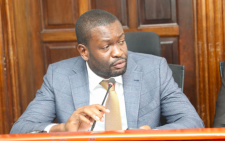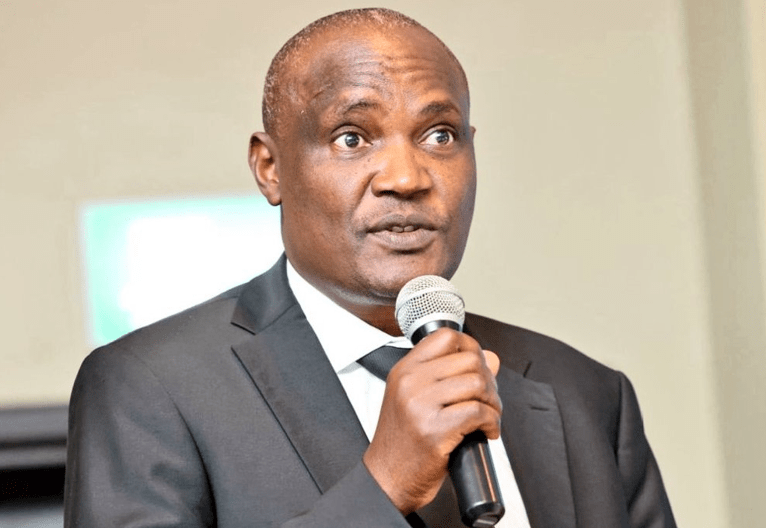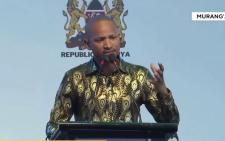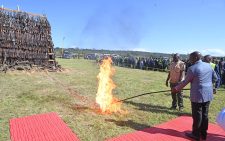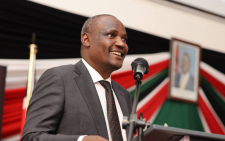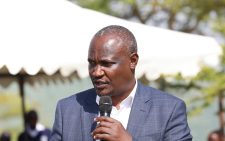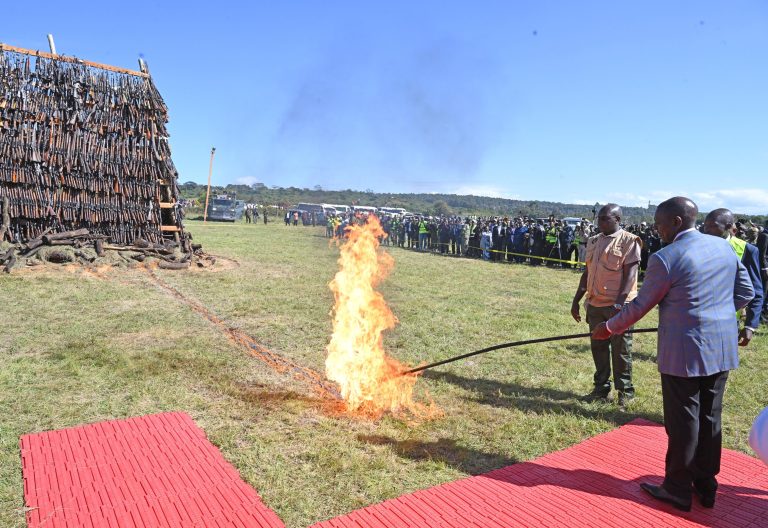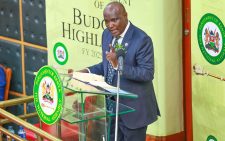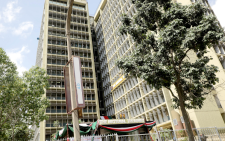EACC lashes out at professionals over graft

Ethics and Anti-Corruption Commission (EACC) Chairperson David Oginde has issued a scathing indictment of professional sectors in Kenya, accusing them of being key enablers of corruption and calling for a transformation led by a few committed individuals rather than mass movements.
Speaking during The Architect Alliance (TAA) meeting in Westlands Oginde challenged all professionals across all sectors to reflect on their role in either resisting or enabling a corrupt system.
“The fight against corruption is not just a legal or political issue, it is deeply ethical. Professionals must take a stand,” he said.
He also emphasized that real societal transformation has historically been driven by a small number of individuals determined to challenge the status quo.
He cited the example of Singapore, where a group of six young university students, led by Lee Kuan Yew, returned home and spearheaded a revolution against deep-rooted corruption, setting the country on a path to global respectability.
“We don’t need masses to make a difference. Transformation in society has always been led by individuals who are simply tired of seeing things go the wrong way,” Oginde said.
He added that Kenya, like Singapore once was, is mired in deep-seated corruption not just in government offices, but within the professional sectors themselves, including law, architecture, engineering, and human resources.
Marking two years since he took over as chair of the EACC on May 9, Oginde recounted his first encounters with the scale of corruption during an Enforcement Committee meeting where cases worth tens of billions of shillings were laid bare.
One case involved the Turkana wind power project, where costs ballooned from Sh18 billion to Sh81 billion. “Even though we have not consumed the power, the government is now obligated to pay nearly Sh6 billion to the provider. This cost has been redistributed to consumers explaining the surge in electricity bills,” Oginde revealed.
Another case involved the construction of Ronald Ngala Utalii College, which saw costs inflated from Sh1.9 billion to Sh8.9 billion, allegedly to ensure a hefty Sh1 billion fee for the architects involved.
“I’m an architect by profession, when i was still in the profession, an architect fee was 6 percent of the contract. If you calculate 6 percent as an architect’s fee, how much must the project cost be to justify that? It’s outrageous,” he said.
Oginde squarely laid blame on professionals, saying they are deeply embedded in nearly every corruption scandal investigated by the EACC.
“There are always professionals involved: lawyers, accountants, architects, engineers. In each of the cases we handle, you find one or several of these professionals aiding or facilitating the fraud,” he said.
He pointed to inflated legal fees as one example. The Auditor General has flagged legal bills of up to Sh2 billion paid to law firms by the Nairobi County Government. “What does a lawyer do to justify a Sh2 billion fee? I’d love to be that kind of a ‘victim,’” Oginde remarked sarcastically.
In the construction sector, professionals have been accused of inflating project costs to earn higher commissions, using technical jargon to exploit the ignorance of clients. He also referenced the recent demolition of an 11-storey building in Mombasa, where an architect had allegedly failed to follow basic safety standards costing the developer Sh350 million.
“In 2022, a building collapsed in Kiambu. Faulty designs approved by professionals were to blame. This isn’t just fraud. It’s negligence that puts lives at risk,” Oginde said.
Oginde attributed part of the corruption epidemic to what he called a “scarcity mindset,” where professionals fear the future and try to grab as much as possible while opportunities last.
“It’s like going to a buffet and piling everything on your plate because you don’t think there will be any left when you return. That’s how professionals approach opportunities grab it all, even if it means tossing ethics out the window,” he explained.
He also mentioned the role of an inferiority complex among professionals who feel the need to prove themselves by accumulating wealth quickly, especially when comparing themselves with peers.
During the meeting the Law Society of Kenya (LSK) President Faith Odhiambo called on professionals, especially lawyers and architects to take a leading role in upholding ethics and accountability in public service delivery, warning that corruption in Kenya is not a result of weak laws but a culture of compromised integrity among professionals.
“We can work together in so many ways, I believe, particularly as the nation is now making a lot of noise as we are defining how we will build our cities,” she said
“Architects come in quite a quite important in just giving direction and that plan, but the lawyers are the ones that put into pen and paper to draft the policies, to draft the laws and also guide in that entire process,” she added.
Odhiambo highlighted the role of lawyers as essential to safeguarding justice and challenging professionals to reject unethical practices that undermine the country’s development.
She emphasized that lawyers serve as architects of justice, upholding the rule of law and ensuring public safety. Her remarks came amid growing public concern over corruption in infrastructure projects, where professionals from various disciplines lawyers, architects, engineers, and auditors have come under scrutiny for complicity or silence in corrupt deals.
She stressed the need for legal professionals to always give independent and honest opinions to clients, even when such advice is unwelcome.
“If a client instructs you to do something unlawful or unethical, step back. Give your reservations in writing it protects you and upholds the law,” she advised fellow advocates
Odhiambo referenced a recent caricature of herself that depicted her with a constitution in hand, reinforcing her commitment to constitutionalism and rule of law. “Sometimes, and lots of times in these times, we accidentally save the republic,” she said.
Odhiambo urged professional associations to take disciplinary matters seriously. While LSK has a disciplinary tribunal and enforces the Advocates Code of Conduct, she questioned how other professions, such as architecture and engineering, hold their members accountable.
“It’s high time we look at all other professional organizations to ensure they have accessible disciplinary systems. Let’s not be rubber stamps,” she said.
